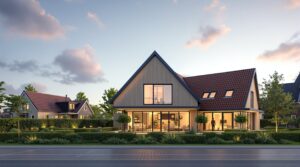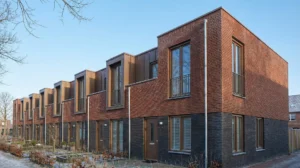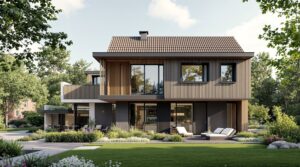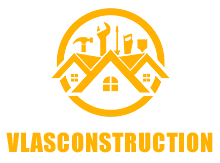Smart Glass Technology: Privacy and Light Control at Your Fingertips
Smart glass technology has revolutionized the way we approach privacy and light control in our homes and buildings. This innovative solution allows glass to switch from transparent to opaque with the touch of a button, providing unparalleled flexibility and functionality. In the Netherlands, where sustainable living and innovative architecture are highly valued, smart glass windows are becoming increasingly popular for both residential and commercial applications.
Basic Concepts
Before diving into the specifics of smart glass technology in the Netherlands, it’s essential to understand the key concepts involved:
- PDLC (Polymer Dispersed Liquid Crystal) Technology: This is one of the most common types of smart glass. It involves tiny liquid crystals dispersed in a polymer matrix. When an electric current is applied, these crystals align, allowing light to pass through and making the glass transparent. Without the current, the crystals are randomly aligned, scattering light and making the glass opaque.
- SPD (Suspended Particle Device) Technology: Another type of smart glass, SPD uses suspended particles that align when an electric current is applied, allowing light to pass through. This technology is known for its fast switching times and high light transmission.
- Thermochromic Coatings: These coatings change color in response to temperature changes, often used in smart windows to regulate heat and light transmission.
Smart Glass Windows in the Netherlands
The Netherlands, with its vibrant cities like Amsterdam and Rotterdam, is a hub for architectural innovation. Smart glass technology is being increasingly adopted in Dutch homes and buildings for its ability to enhance privacy, control light, and contribute to sustainable living.
Benefits of Smart Glass
Smart glass offers several benefits that make it an attractive choice for Dutch residents looking to renovate or extend their homes:
- Privacy Control: With the ability to switch from transparent to opaque, smart glass provides instant privacy, making it ideal for bathrooms, bedrooms, or meeting rooms.
- Light Control: Smart glass can block UV rays and reduce glare, helping to regulate indoor lighting conditions and protect furniture from fading.
- Energy Efficiency: By controlling the amount of sunlight entering a room, smart glass can help reduce the need for heating and cooling, contributing to energy savings.
- Aesthetic Appeal: Smart glass adds a sleek, modern look to any room, enhancing its aesthetic appeal.
Companies and Innovations
Several companies in the Netherlands are at the forefront of smart glass technology:
- Gauzy: Known for its SPD and PDLC technologies, Gauzy offers a range of smart glass solutions, including laminated and adhesive films, ideal for new constructions or retrofitting existing glass.
- eLstar Dynamics: This Eindhoven-based company has received significant funding to advance its adaptive smart glass technology, focusing on both architectural and automotive applications.
- TNO: The Dutch research organization is developing thermochromic smart windows that can reduce energy consumption by regulating indoor temperatures.
Practical Tips for Implementing Smart Glass
When considering smart glass for your home renovation or extension in the Netherlands, follow these practical tips:
- Assess Your Needs: Determine which rooms would benefit most from smart glass, considering factors like privacy and light control.
- Choose the Right Technology: Decide between PDLC, SPD, or thermochromic coatings based on your specific requirements and budget.
- Consider Energy Efficiency: Calculate how smart glass can help reduce your energy bills and contribute to a more sustainable living environment.
- Consult Professionals: Work with experienced installers to ensure a smooth and successful installation process.
Conclusion
Smart glass technology offers Dutch residents a powerful tool for enhancing privacy, controlling light, and contributing to sustainable living. With its innovative solutions and growing demand for energy-efficient buildings, smart glass is set to play a significant role in the future of Dutch architecture. Whether you’re renovating an existing home or building a new one, smart glass windows can provide the perfect blend of functionality and style.
Research and Market Trends
The market for smart glass is rapidly expanding, driven by advancements in technology and increasing demand for sustainable solutions. In the Netherlands, this trend is particularly pronounced, with companies like eLstar Dynamics and TNO pushing the boundaries of what smart glass can achieve.
Market Growth
The global energy-efficient window market is projected to grow significantly over the next decade, with smart glass playing a key role in this expansion. This growth is fueled by government regulations promoting sustainable building practices and consumer demand for innovative, eco-friendly solutions.
Technological Advancements
Advancements in smart glass technology are opening up new possibilities for its application. From interactive glare control systems to thermochromic coatings, the options for integrating smart glass into buildings are becoming increasingly diverse and sophisticated.
Future Impact
As the Netherlands continues to prioritize sustainability and innovation, smart glass technology is poised to make a significant impact on the country’s built environment. By embracing this technology, Dutch residents can not only enhance their living spaces but also contribute to a more energy-efficient and environmentally friendly future.
Comparison of Smart Glass Technologies
| Technology | Description | Benefits | Applications |
|---|---|---|---|
| PDLC | Uses liquid crystals to control transparency | Fast switching, low haze, customizable | Residential, commercial, automotive |
| SPD | Utilizes suspended particles for light control | Fast switching, high light transmission | Architectural, automotive |
| Thermochromic Coatings | Changes color with temperature changes | Energy efficiency, temperature regulation | Residential, commercial windows |
This table highlights the key features and applications of different smart glass technologies, helping you make an informed decision for your specific needs.








